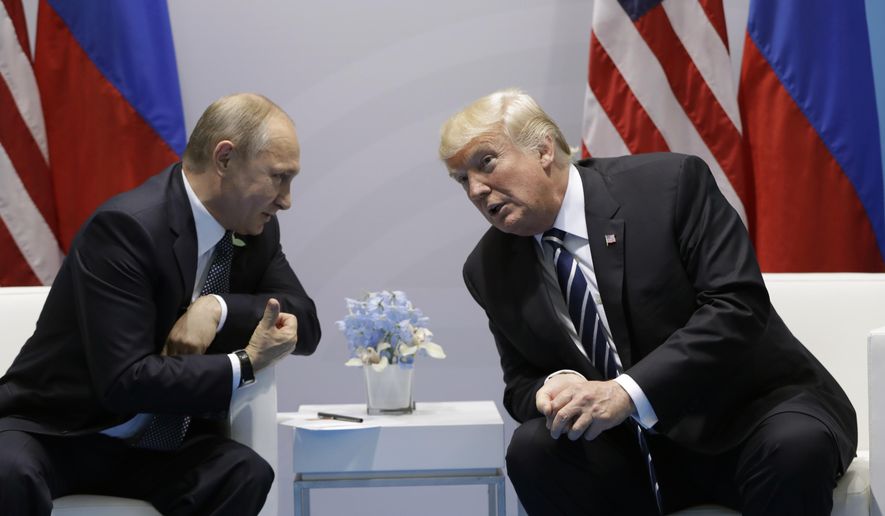
WASHINGTON (AP) - President Donald Trump seems of two minds on nuclear weapons. He muses about eliminating them but also has called for a U.S. buildup and bragged about his nuclear “button.”
In March, while forecasting a face-to-face meeting on this topic with Russian President Vladimir Putin, Trump said in the same breath that an arms race was “getting out of control” and that he would never allow any country to have weapons “even close to what we have,” although Russia already does.
How these seemingly competing instincts will play out in his talks Monday with Putin in Helsinki could profoundly affect the direction of U.S. defense policy.
Before leaving a NATO summit in Brussels on Thursday, Trump was asked by a reporter whether he would raise long-standing U.S. allegations that Russia is violating a Cold War-era nuclear arms treaty, and whether he favors extending a separate treaty that he has criticized in the past as disadvantaging the U.S.
His one-word answer to the two-part question was “yes” - the first public indication that he wants to extend the New Start treaty, which expires in three years. Then on Friday, he vaguely spoke about how “it would be a tremendous achievement if we could do something about nuclear proliferation.”
Yet Trump’s administration has shown little interest in negotiating further reductions in American and Russian strategic nuclear weapons. It has been more focused on formulating its own nuclear policy and on combating the nuclear threat posed by North Korea.
U.S.-Russian strategic nuclear weapons - those capable of striking each other’s territory - are governed by New Start, which was negotiated by the Obama administration in 2010. It limits each country to 1,550 strategic nuclear warheads. President Barack Obama favored further cuts, but U.S.-Russian relations soured after Moscow’s 2014 annexation of Crimea.
The New Start deal is set to expire in February 2021 unless both sides agree to extend it. The Trump administration has been reviewing its position, so it’s unclear whether Trump and Putin will do more than agree that their staffs should study the possibility of an extension. Private U.S. arms control advocates are urging an extension, in part because they see value in a treaty provision allowing each side to monitor what the other is doing on strategic weapons.
Daryl Kimball, executive director of the Arms Control Association, says Trump and Putin could instruct their aides to begin formal work on a five-year extension of the treaty, which would not require a renegotiation of its terms or ratification by the legislative branch of either government....
“If they don’t extend New Start, there is a worrisome possibility that by 2021 there will be no legally binding limits on the world’s two largest arsenals, and as a result, all of the difficult security challenges we have with the Russians will become even more difficult to manage,” Kimball said.Analysts have puzzled over Trump’s likely approach to an arms control discussion with
